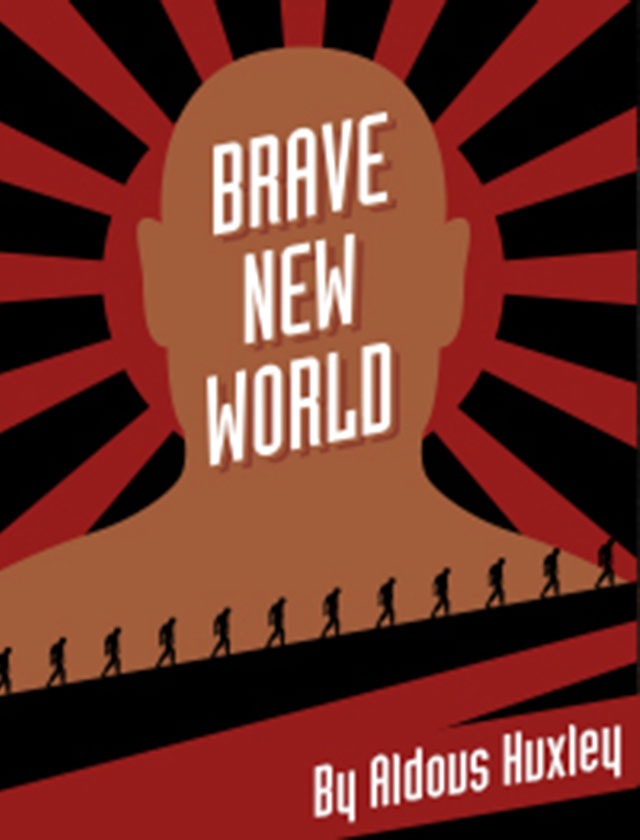Brave New World
by Aldous Huxley
Key Terms
Utopia—Derived from Greek, meaning “good place.” Utopian works of fiction describe ideal societies free of the world’s evils, and may be simply speculative or deliberately satirical.
Dystopia—A clearly flawed attempt at utopia. The term was popularized in the 1920s to describe an emerging body of satirical fiction about imagined totalitarian societies.
Alpha, Beta, Gamma, Delta, Epsilon—Names of the five castes described in Brave New World, from highest to lowest. They are taken from the first five letters of the Greek alphabet.
Bokanovsky’s Process—Huxley’s term for the process by which many identical eggs are produced from a single one.
Podsnap’s Technique—Huxley’s term for the method used to speed up the ripening of eggs. It produces many identical human beings at about the same time.
Decanting—Usually means to pour something from one container into another. Huxley uses the term to mean “birth” as it is known in the dystopia.
Freemartin—An infertile female calf. Huxley uses it as a term for sterile women, which includes most of the women in the dystopia.
A.F.—After Ford, Huxley’s term for all the dates in the futuristic dystopia. It is an adaptation of A.D. (anno domini).
Henry Ford—(1863-1947) American car manufacturer generally credited with the invention of interchangeable parts and assembly line production.
Model T—The first car produced by Henry Ford using his assembly line method.
Neo-Pavlovian Conditioning—Huxley’s term for the method of training infants in the dystopia, derived from the conditioning system originally named after Russian physiologist Ivan Pavlov (1849-1931).
Hypnopaedia—Method of...
Sign up to continue reading Key Terms >